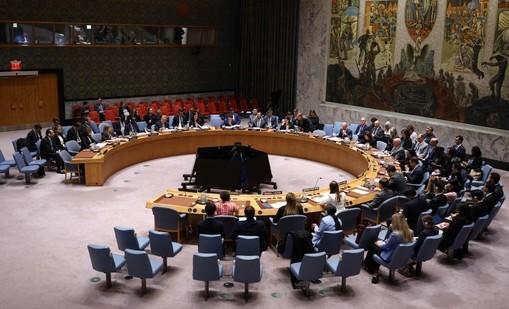
Was LeT involved? UNSC asks Pak on J&K attack, refuses to accept ‘false flag’ claim
The United Nations Security Council (UNSC) has refused to buy into Pakistan’s “false flag” narrative on the recent attack in Pahalgam, Jammu and Kashmir, and instead, questioned whether the terror outfit Lashkar-e-Taiba (LeT) was involved in the incident. This development comes as a major blow to Pakistan’s attempts to deflect responsibility and shift the blame for the attack, which targeted tourists.
According to reports, the UNSC held a closed-door meeting in response to a request made by Pakistan, during which the country’s representatives claimed that the attack was a “false flag” operation orchestrated by India to tarnish Pakistan’s image. However, the UNSC members were not convinced by Pakistan’s claims and instead, asked pointed questions about the possible involvement of LeT, a Pakistan-based terrorist organization.
Some UNSC members reportedly raised concerns about the attack being motivated by religion, given that it targeted tourists, and wondered whether LeT, which has a history of carrying out attacks in Kashmir, was likely to be involved. This suggests that the UNSC members are not buying into Pakistan’s narrative and are instead, focusing on the facts and evidence surrounding the attack.
The Pahalgam attack, which took place on October 7, saw a group of terrorists open fire on a bus carrying tourists, killing one person and injuring several others. The attack was widely condemned by the international community, with many countries calling for Pakistan to take immediate action to prevent such incidents in the future.
Pakistan’s attempts to deflect responsibility for the attack have been met with skepticism by many countries, including India, which has accused Pakistan of providing safe haven to terrorist organizations like LeT and Jaish-e-Mohammed (JeM). These organizations have been responsible for carrying out numerous attacks in Kashmir and elsewhere in India, resulting in the loss of hundreds of innocent lives.
The UNSC’s refusal to accept Pakistan’s “false flag” narrative is a significant development, as it suggests that the international community is not willing to accept Pakistan’s attempts to shift the blame for the attack. Instead, the UNSC members are focusing on the facts and evidence surrounding the attack, and questioning Pakistan’s role in the incident.
This move is likely to put pressure on Pakistan to take concrete action to prevent such incidents in the future. Pakistan has a long history of supporting terrorist organizations, and has been accused of providing them with safe haven and logistical support. The UNSC’s refusal to accept Pakistan’s narrative is a clear indication that the international community is no longer willing to tolerate Pakistan’s support for terrorism.
The UNSC’s decision is also a significant blow to Pakistan’s attempts to distract attention from its own human rights abuses in Kashmir. Pakistan has been accused of committing numerous human rights abuses in Kashmir, including the use of force against peaceful protesters, arbitrary arrests, and torture. The UNSC’s focus on the Pahalgam attack and Pakistan’s role in it is a clear indication that the international community is not willing to ignore these abuses.
In conclusion, the UNSC’s refusal to accept Pakistan’s “false flag” narrative on the Pahalgam attack is a significant development, as it suggests that the international community is no longer willing to tolerate Pakistan’s support for terrorism. The UNSC’s focus on the attack and Pakistan’s role in it is likely to put pressure on Pakistan to take concrete action to prevent such incidents in the future. It is high time for Pakistan to stop supporting terrorist organizations and focus on addressing the legitimate grievances of the people of Kashmir.



